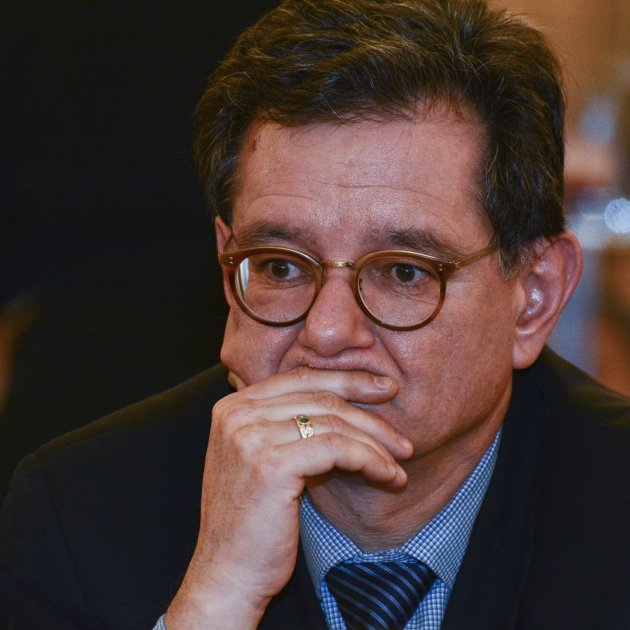It is a criticism of Spanish democracy that is frequently heard from pro-independence leaders. But now a leading Spanish prosecutor has come out and said it bluntly as well: that the real justice is to be found in the judicial instances of Europe, such as the European Court of Human Rights. The assertion comes from prestigious prosecutor Carlos Castresana: "The democratic culture we enjoy in Spain comes mainly from joining the European Union and having ratified the Convention on Human Rights and the whole legal system of the Council of Europe".
The prosecutor Castresana, known for such cases as that which brought Augusto Pinochet to court in the UK in 1996, made these statements in an interview with the digital daily Eldiario.es in which he reviews the shortcomings of the Spanish judicial system and the problems of renewing bodies such as the General Council of the Judiciary (CGPJ). "For us, the rule of law comes from Strasbourg and Brussels, but it is not born in Madrid, as it should be," criticizes Carlos Castresana while denouncing the drift of the Spanish judicial system.
The root of the problem
"People are trying to achieve, through blockades and sentences, what the ballot boxes have not given them." This is the main problem of the Spanish judicial system according to the prosecutor, but, in fact, the root of the problem go further back: Spain's transition to constitutional government at the end of the Franco dictatorship.
In all transitions, as the instruments of transitional justice establish, a series of conditions must be met to transform an authoritarian state into a democratic one, Castresana explains. First, he points out, there must be elected representatives in transparent electoral processes, and after that, the governors and those governed, as well as the entire apparatus of the state must submit to the principle of legality.
The prosecutor is very clear that these two rules have not been complied with in Spain, as "people, structures and institutions were not changed." "A democratic culture was not imposed and these people, who had served for four decades in a dictatorship, continued to do as they had done before,” the prestigious prosecutor stresses. Castresana says that the justice system continues to do what it did before the democratic transition: being strong with the weak and weak with the strong.
The interviewer brings up a specific case, that of the judge of the Supreme Court's criminal chamber, Luis Vivas Marzal, a former combatant of Spain's Nazi-supporting Blue Division, who often boasted of "having served the Franco regime with enthusiasm" and retired with full honours in 1987.
Castresana gives the background: "There was no rejuvenation: no one was removed or vetoed. The same people who had been judges and prosecutors in Franco's [political] Court of Public Order, were switched over in 1977, without any transition, by a decree of the government of Adolfo Suárez, to be judges and prosecutors in the newly-created National Audience," the prosecutor denounces.
The PP's blockade
Spanish justice continues to have problems today and a visible failing at present is centred on the inability of the two establishment political parties, the PSOE and the PP, to renew the General Council of the Judiciary, whose mandate expired three years ago. The PP are demanding the modification of the system of election of the members of the CGPJ - Spanish justice's highest governing body - although, with regard to this, Carlos Castresana assures that the current system works correctly.
"It is, once again, a political action, which arises from a deficit of democratic culture," he explains while making it clear that the system of electing members of the judicial body "provides judicial guarantees." The problem in Spain, according to the expert, is that the Congress and the Senate have not been up to the task, they have not made a truly objective selection of the best candidates based on their professional merits and their proven independence. "The problem is not, then, how they are chosen, but who is chosen," Castresana says.
Main photo: Spanish prosecutor Carlos Castresana / Flickr
